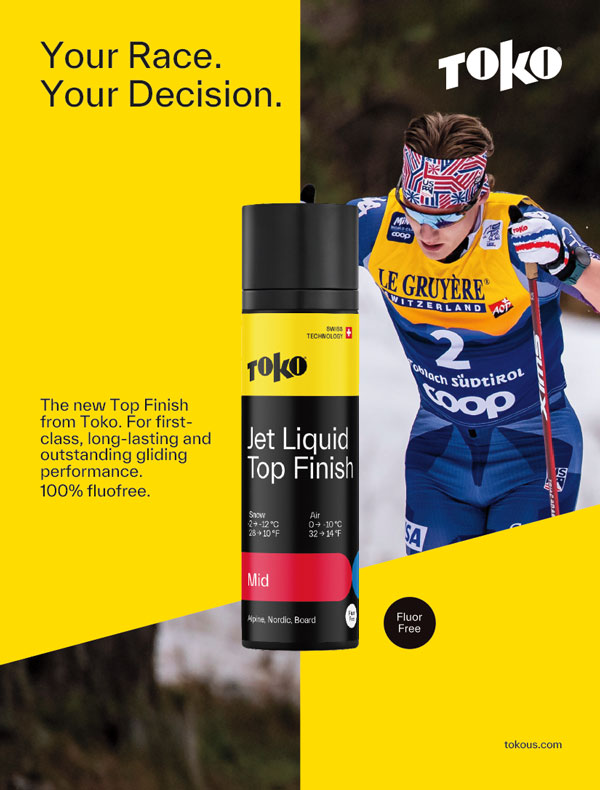
Whistler Follow-up
Kris Freeman
Wed, Aug 6, 2008 - By Zach Caldwell
After Saturday’s pursuit time trial there was still a day left of Whistler Camp - time for one more three hour run. Fortunately for me, Amy headed off to the Haig glacier at 5:30 Sunday morning, and three hours is still a bit long for Gunnar - so I got a bye on the last session. Kris and Dan headed out into the fog, clouds and mist of the first “typical” Squamish day since the start of the camp, armed with a photocopy of a map, and a vague idea of where to go. To be a bit more accurate, I dropped the guys off at the Brennan Falls parking lot, and they headed up the backside of the chief - aiming to come out in Valleycliff and get home sometime around the 3 hour mark. With Dan navigating they arrived back at the place at 3:00:03 - well within Dan’s stated acceptable tolerance of one minute per hour of planned training.
On that last run both the guys were feeling the load of the week. Every athlete I work with has somewhat different sensations and wholly different vocabulary for describing the sensation of overload. Kris refers to suppression, and eventually “numbness”, while Dan calls it “autopilot”. Anyway, they had a good three hours to compare notes if they wanted to, because they were both there.
From Kris’s perspective this is interesting to note, and somewhat reassuring. That state of suppression is something that we’ve been working to avoid, at least for prolonged periods, this year. The reason it’s interesting is that the volume load during the Whistler camp was quite moderate - even low, if you want to call three hours a day low. Kris felt quite clear that the state of suppression was a result of the intensity stimulus, and this is consistent with what we saw last September. It’s really good news to have touched that state, but only peripherally. It tells us that the load for the Whistler camp was certainly not too low, and reinforces the need to be quite conservative in scheduling these intensity camps.
On the up-side, Kris responded exactly as we’d hoped he would to the intensity stimulus. From a healthy state of recovery and well developed fitness the body should respond positively to an intensity stimulus. My friend Vesa has pointed me to some interesting research and ideas indicating evidence of a release of aerobic enzymes in response to an intensity stimulus. Whatever the mechanism, Kris’s response to the intensity stimulus during the camp was immediate and additive - he got better with each hard session. It’s not at all clear that he could have continued to feel good and perform with continued improvements if we had simply continued the camp. The suppression he felt on the last run was probably evidence to suggest that he’d taken a pretty good dose.
I’ve mentioned before that this is the first of several intensity camps during which we’re aiming to develop a race-preparation strategy built around the model of stability/intensity/recovery/race. For this past camp the stability load that Kris carried in was pretty high. He wasn’t suppressed or over-tired, but he came into the Park City testing directly off quite a high training load. As a test of the model the Whistler camp was successful at proving the stability/intensity part of the equation. But we have to acknowledge that more room can and will be made in the stability part of the equation as race season nears. In other words, Kris will come into the race preparation phase carrying a smaller load.
So what of the recovery/race part of the equation? Well, it’s getting a very rough test. Kris has had a moderate load since he returned home on Monday morning. While he’s been putting in some hours, they’ve been closer to the three hours per day he carried through the Whistler camp than the four+ he usually carries through a volume block. While it hasn’t been recovery, it’s been sufficient to clear him of the sense of suppression, and he’s been feeling quite good. Tomorrow is the final part of the Whistler camp test - a mountain triathlon that he’s won for the pas two years. It was either this or a Sunapee test, and this happens to be Kris’s favorite race outside of ski season, so he chose it. Unfortunately it’s been wet enough back home so that a really fast time on the mountain bike is highly unlikely. We’ll have the be content with the run up Cannon mountain at the end of the race as a “controlled” test. It would be nice if Kris could beat his course record, but ultimately we’ll be content to take his subjective feedback on race sensations and move forward.
After the triathlon Kris will do one moderate OD, and then he hits the road for a short sponsor trip. When he returns he’s looking at a solid block of volume training before another intensity camp in Whistler at the beginning of September.
Reprinted with permission from the Kris Freeman website at http://www.krisfreeman.net/. Copyright © Zach Caldwell and Kris Freeman

